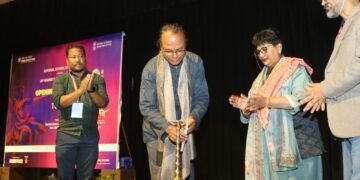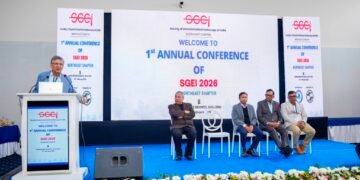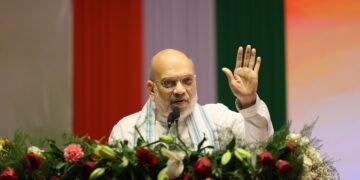The Khasi Authors’ Society (KAS) will soon resume its movement to pursue their demand for inclusion of the Khasi language in the Eighth Schedule of the Constitution.
Informing that the KAS, with a strength of 147 members, will hold its general council meeting on Tuesday to elect its new office bearers where they will also discuss in-depth how to go about realizing this demand, RP Kharshiing, KAS general secretary, told Highland Post that the Khasi language remains in the list as one of 38 other languages that are demanding inclusion in the Eighth Schedule.
He said that a lack of political will is one of the barriers to getting Khasi into the Eighth Schedule. But the other, he added, is that the state government is trying to get both Khasi and Garo included at the same time.
“Our political leaders have no interest to do requisite research work to make this happen… The Khasi language has fulfilled all the criteria, whether it’s the population, inclusion of the language in the curriculum from the primary to the university level, etc. and this language will never perish,” Kharshiing said, explaining that the advantages of getting into the Eighth Schedule include allowing prospective candidates to sit Union Public Service Commission exams in the Khasi language as well as job opportunities for translators, professors, and others.
He also opined that the push for Garo and Khasi languages should be done separately and not at the same time since the state does not have even one language that has been recognized. In support of this opinion, he pointed out that Assamese was first included before Bodo from Assam.
“If our government wants both languages to be included at the same time then this will be a problem and a hurdle for the Union Home Ministry,” he added.
Meanwhile, on the subject of making Hindi compulsory in North East schools up to Class 10, Kharshiing disagreed with the central government.
“The government has to look carefully at this matter because we already have English as a compulsory subject and we have the MIL (Modern Indian Languages) to choose from as an optional subject,” Kharshiing said, adding that making Hindi compulsory will only add to the burden and the students here will find it difficult to score high grades in the subject.
Stating that Meghalaya does not even have ample Hindi teachers, he said that nothing has been clearly stated to date and clear clarification has to come from the ministry and the state government.

























